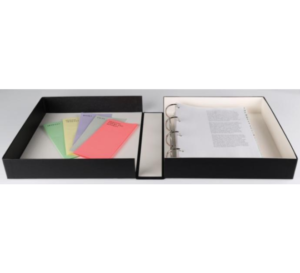Week 4 //// Ethics in Artistic Research – Linda O Keeffe
Collaborative Inquiry: Participatory art Practice and positionality
Please visit this link to watch online lecture with Linda O Keeffe on Ethics in Artistic Research in preparation for the session discussion.
In Week 4’s seminar, we will consider a shared concern in art and anthropology –the ethics of participatory arts research.
In both fields, the relationship between practitioners (artist/anthropologist) and the object or person of their research has been a subject of discussion (and contention) and this will form the focus of our work this week.
We will look at ways in which the relationship between practitioner and people or objects they work with have been framed, critiqued, and reframed across both disciplines as our understanding of the ethics of research has shaped their practice. In considering the relational dimensions of both art and anthropology, we’ll consider key concepts of subjectivity and objectivity, emic and etic perspectives, and claims to authority and authorship.
Definition of Participatory Art Practice
Artists interested in engaging with people to make exceptional art often engage with communities in the broadest sense of the word – it can be a neighbourhood organisation; people united by a hobby or interest like a chess club; working fishermen, farmers or asylum seekers.
Collaborative arts practice plays with and contests notions of authorship and the idea of the artist-genius working in isolation. Work that is made collaboratively with different groups often exists outside of the gallery or takes place outside the traditional theatre space. Or it may take place in a prison or hospital. It can also be interdisciplinary and for example involve a musician working with a visual artist or an architect with a dance artist.
Examples in links below:
Case study – Workers!
In the second half of the session, we’ll focus on the genesis of a particular case study, Workers!, a film co-authored by artist and filmmaker Petra Bauer and sex worker-led organisation SCOT-PEP that is now part of the University’s Contemporary Art Research Collection (link). This film focuses on the experiences of a collective of sex workers in Scotland, their fight for labour rights and their relationship to (women’s) work. We will focus on the film, the film’s PRODUCTION DOSSIER (the research for the film), on a little on its critical reception.
Link to the Film Workers! (38:12)
You may have to login using your EASE password to view the film in MediaHopper:
Preparation for the Seminar
- Please read:
-
- Workers a Conversation (Link)
- Introduction: An Otherwise Anthropology, Laura McTighe and Megan Raschig. 2019. In: Theorizing the Contemporary, Fieldsights, July 31. (link)
- Anthony Downey (2009) An Ethics of Engagement: Collaborative Art Practices and the Return of the Ethnographer, Third Text, 23:5, 593-603, DOI: 10.1080/09528820903184849 (link)
- Karen O Reilly Ethical_ethnography in Ethnographic_Methods (link)
- There Is No Such Thing as Documentary: An Interview with Trinh T. Minh-Ha, Erika Balsom. 2018. In: Frieze, Issue 99. (link)
As you’re looking at this material, think about how these texts might relate to the following key terms:
-
- subjectivity and objectivity
- emic and etic perspectives (a good paper for understanding the emic/etic meaning HERE)
- authority
- authorship
As you’re looking at this material, consider the following questions:
In the official blurb that accompanied its screening (link), Workers! is described as being co-authored by the artist and filmmaker Petra Bauer and sex worker-led organisation SCOT-PEP. In the PRODUCTION DOSSIER and in article “Workers! A Conversation”, can you find other ways that this working relationship is described?
Based on watching the film and looking at the PRODUCTION DOSSIER, do you think this film takes an anthropological approach?
Why / not?
Were ethics considered in the development, production and release of this film?
Could we consider it in relation to particular anthropological methods that we looked at in Weeks 2 and 3?
Do you think that the PRODUCTION DOSSIER can be considered to a form of field notes?

Workers! (Phase 1) (2017) University of Edinburgh Collections

